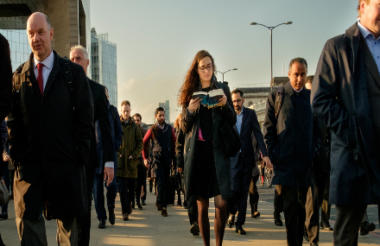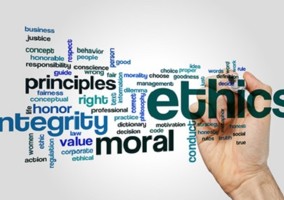Is it right to expect leading civil society organisations to do more to empower local communities, combat alienation and model participatory democracy as an antidote?
This was the challenge, as I understood it, laid down by Julia Unwin, chair of Civil Society Futures, in her Civil Society Voices article of 14 August. Julia was concerned to address the gross centralisation of decision making in our system of government (hear, hear), but also challenged leading civil society organisations, if they wish to rejuvenate their jaded sector, to show government how a more empowering and participative approach should be done. She clearly implied that they were not doing this well enough at present, and "almost all" of them were "almost" completely absent from the communities consulted by the Civil Society Futures programme.
My immediate reaction was "Yay!" This was not just because I have great respect for Julia and the Civil Society Futures initiative, but also because this is the emotional heartbeat and theory of change of the international development charity of which I am a proud international board member, ActionAid International.
We believe in empowering communities to assert their rights and challenge unequal power relationships of all kinds, including gender relations, discrimination against caste or ethnic groups, and unaccountable power elites in government or corporations. We believe in people power. The typical ActionAid posture is sitting in a circle on the ground with people from social movements of the poor or oppressed, listening to them and facilitating them to discover in themselves the seeds of people power, and then to define and assert their priority demands. This empowerment, rooted in local communities, is then reinforced by helping them to link with other similar groups in the district, region, nationally and internationally, to influence the decisions at those levels that affect their life chances. Women's rights are absolutely key to all this. We believe that in the long run we cannot eliminate poverty and social injustice without challenging malevolent power structures.
Making distinctions
After that initial warm gush of affirmation, however, I have found myself trying to think harder about Julia's challenge, and trying to make some distinctions.
For leading civil society organisations differ widely. Some are centralised monoliths, but many are not. Take the religious ones. What about the Church of England? Whatever its weaknesses, it is present in every parish, it has hundreds of thousands of active adherents and is in so many places a nursery of participation, volunteering and community. The governance is a mixture, but local churches are independent charities and elect their PCC (the trustees) and there are Synods at deanery, Diocesan and national level to determine policy, with extensive powers for elected clergy and laity. I don't understand how this leading organisation fits into Julia's picture of absentee charities failing to impinge on local alienation. This is only one example. There are of course many other Christian denominations, some more democratic, some less, plus all the other faith communities. Love them or loathe them, they offer participation, a sense of agency, relief from loneliness or neglect, and facilities where community bonds can be formed; and many decisions affecting them are typically taken locally.
The broader point is that many charities with a leading national profile have local branches, which may be local charities in their own right as well as part of a national network. Of the secular variety, think of Women's Institutes, Age UK, Citizens' Advice Bureaux, The Ramblers' Association, Girlguiding and The Scouts, Mind, Mencap and so forth. Were they and their religious counterparts really all "almost completely absent"? Or were they present but not relevant enough to combatting alienation? Do their users and members continue to feel as alienated as before, or is it those whom they don't reach? Again, some of these organisations (such as the Ramblers) are highly democratic in their governance structures, others less so. So what is it exactly that they are being challenged to be or do - Be more present in more places? Be more democratic or participative in their own internal structures? Be more consultative in the way they consult actual or potential users and beneficiaries in making decisions about their priorities? We need clarity as to what the challenge is, and to whom.
Bear in mind, too, that "communities" are not only geographical. There are also communities of interest, communities of shared enthusiasm, communities of special need, communities of belief, and the reason for existence for many charities is to serve these. I do not know to what extent Civil Society Futures intend to consult these communities, as well as geographical ones, or whether the findings would be any different. The fact is, however, that it isn't the purpose of many kinds of charity to mitigate the alienation of geographical communities or promote democracy. It might be to engage in medical research, or protect the heritage, or assist sufferers from a specific disease and their families, or a thousand other causes. The trustees of those charities should surely be considering a more participative and democratic methodology only in so far as their theory of change suggests that this will be the very best way of securing their charitable objectives? For some it really might. For others, perhaps not.
Cause of powerlessness
Similarly, feelings of alienation, powerlessness and lack of control also have varied causes and components. Julia's article does not mention that women in particular tend to feel alienation and powerlessness as a result of patriarchy in our society. That brings a whole series of crucial challenges for the sector, (and wider society) that are not about being more consultative or participatory in a general sense; they are more specifically about rooting out entrenched cultural biases and embracing policies to promote women's rights, safety, confidence, participation and expectations.
To take a quite different example, there are few things more likely to induce a sense of powerlessness than the awareness that our whole planet may be going down the celestial toilet as a result of global warming. Two of our leading civil society organisations in the environmental field try to address this in different ways. Friends of the Earth is structured around local groups and a democratic governance, feeding into an important national and international presence. Greenpeace takes on the unaccountable global Goliaths of environmental destruction through much more centralised decision making, galvanising support and awareness through mighty media campaigns. Either organisation can give us supporters the feeling that at least we can do something to help. So what is Civil Society Futures now challenging them to do differently, and why? Is the same challenge equally valid for two organisations with such different USPs and structures?
At another level, if I am a sufferer from a disability or chronic disease, the greatest contribution to my sense of being in control might be from the charity that links me to other sufferers and their experience of managing, and to specialist online resources, aids to daily living or more appropriate housing. If I am a cancer patient, my number one requirement to feel more in control of my destiny may be, simply, to have the cancer cured or knocked back, (perhaps as a result of research funded by Cancer Research UK, one of the leading bodies named by Julia Unwin) or, if not, to be helped to manage.
If I am a care leaver who feels nobody gives a damn about me, the charity that can give me back a sense of hope, worth, agency and control may be a children's charity that assigns a key worker to me for the long term, valuing me and believing in me for the first time in my life...ie, a charity like Barnardos - another of those implicitly flawed leaders named by Julia Unwin in her phrase "From RSPB to Barnardos, from Cancer Research UK to the Red Cross".
It isn't Barnardos' charitable purpose to empower local communities, or promote democracy and participation for all, but to empower and nurture the most vulnerable and alienated children and young people: as they say on their website "We listen to them. We believe in them - no matter who they are, what they have done or what they have been through." It reaches 248,000 children, young people and carers in a year, and deploys over 20,000 volunteers. Quite a bit of additional agency generated there? Barnardos also researches and campaigns hard to create a better life for children in the future, drawing on all the listening they have done.
So what exactly are we challenging Barnardos to do? Re-examine its theory of change in case it could achieve more for children by a more democratic structure of internal decision-making? Or by more diverse methods of consultation at a local level, going beyond the stakeholders currently consulted, before a new project or commissioning bid is launched? Or even, more radically, adding to its constitution a new charitable purpose of community development? Barnardos has broad enough shoulders to endure a friendly challenge from Civil Society Futures, but it would need to know what the challenge actually is.
Now consider the RSPB, whose purpose is not to empower local communities but to protect and nurture birds and nature. To this end, in the UK (I am ignoring here their formidable international role) it mobilises nearly 19,000 volunteers in a year, it has 155 community-based local groups and more than 300 youth groups. It empowers untold numbers of children and grown ups to pursue and deepen a love and understanding of nature - through using its resources, bird watching, participating in research, pond dipping, rock pooling, and instructive walks in its 170 nature reserves. They have over a million members, who elect its president, nominate and elect members of council and can demand a ballot on certain resolutions put to council, so its governance is quite different from (say) Barnardos. What else are we challenging them to do if they are to play a bigger role in reducing local communities' sense of alienation, in a way that also actually advances their charitable purpose?
Be careful what we wish for
I realise that Julia's article is only a brief taster, partly designed to provoke. So we must look forward to more expansive, detailed explanations of the challenges emerging from the Civil Society Futures initiative. The generalised challenge to leading voluntary organisations raises a lot of questions because they are so different from each other in terms of their local presence, their purposes, their USPs and their systems of internal governance and external operation. Concepts of alienation, powerlessness and lack of control will also need breaking down into different components.
Every one of our leading civil society organisations has weaknesses and needs to review, evaluate and refresh itself, asking searching questions, at regular intervals. The ones I know already do this. Can Civil Society Futures refine the nature of the challenge to help them do it better? Reading their impact statements, supporting and participating in some of them, and observing them over some decades now discloses, in my opinion, for all their faults, an impressive and precious contribution to our common life and, indeed, to a more vivid sense of agency and control in important dimensions for many people. So, in the enthusiasm for transformation, let us, please, also be careful what we wish for.
Related articles












